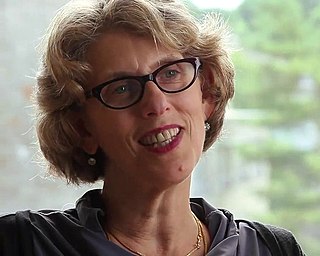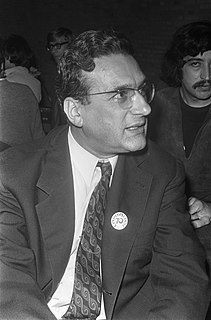A Quote by Voltairine de Cleyre
But what the working-class can do, when once they grow into a solidified organization, is to show the possessing class, through a sudden cessation of all work, that the whole social structure rests on them; that the possessions of the others are absolutely worthless to them without the workers' activity; that such protests, such strikes, are inherent in the system of property and will continually recur until the whole thing is abolished - and having shown that effectively, proceed to expropriate.
Quote Topics
Absolutely
Activity
Class
Continually
Effectively
Grow
Having
Inherent
Once
Organization
Others
Possessing
Possessions
Proceed
Property
Protests
Rests
Show
Shown
Social
Social Structure
Strikes
Structure
Sudden
System
Them
Thing
Through
Until
Whole
Will
Without
Work
Workers
Working
Working-Class
Worthless
Related Quotes
We are social animals and we have a hierarachical and unequal society. It is a class society, and the class system creates and perpetuates the social role of consumption. We display our class membership and solidify our class positioning in large part through money, through what we have. Consumption is a way of verifying what you have and earn.
I would prefer to use a very inclusive definition of the working class. I'd like to include all of those people who are, if they're not exploited by an immediate employer over them, they're exploited by the system and therefore have a cause to want to change the system. Having a very inclusive definition of the working class creates a great opportunity for organizing people.
This society in which knowledge workers dominate is in danger of a new "class conflict" between the large minority of knowledge workers and the majority of workers who will make their livings through traditional ways, either by manual work... or by service work. The productivity of knowledge work - still abysmally low - will predictably become the economic challenge of the knowledge society. On it will depend the ability of the knowledge society to give decent incomes, and with them dignity and status, to non knowledge people.
Whereas the property-owning middle class could win freedom for themselves on the basis of rights to property--thus excluding others from the freedom they gain--the property-less working class possess nothing but their title as human beings. Thus they can liberate themselves only by liberating all humanity.
The dominant, almost general, idea of revolution - particularly the Socialist idea - is that revolution is a violent change of social conditions through which one social class, the working class, becomes dominant over another class, the capitalist class. It is the conception of a purely physical change, and as such it involves only political scene shifting and institutional rearrangements
So the state founded on natural principles is wise as a whole in virtue of the knowledge inherent in its smallest constituent class, which exercises authority over the rest. And the smallest class is the one which naturally possesses that form of knowledge which alone of all others deserves the title of wisdom.
It is evident that the right of acquiring and possessing property, and having it protected, is one of the natural, inherent, and unalienable rights of man. Men have a sense of property: Property is necessary to their subsistence, and correspondent to their natural wants and desires; its security was one of the objects, that induced them to unite in society. No man would become a member of a community, in which he could not enjoy the fruits of his honest labour and industry.
...the tragedy of consumerism: one acquires more and more things without taking the time to ever see and know them, and thus one never truly enjoys them. One has without truly having. The consumer is right-there is pleasure to be had in good things, a sacred and almost unspeakable pleasure, but the consumer wrongly thinks that one finds this pleasure by having more and more possessions instead of possessing them more truly through grateful contemplation. And here we are, living in an economy that perpetuates this tragedy.





































